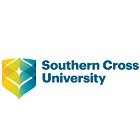Bachelor of Occupational Therapy
Bachelor of Occupational Therapy
Occupational therapists’ work is diverse. They adapt environments, activities or equipment to enhance participation in everyday tasks, assisting people of all ages and abilities to do what they need and want to do at home, work, and school and in the community. You will develop a range of clinical skills…
Categories
COURSE DESCRIPTION
Occupational therapists’ work is diverse. They adapt environments, activities or equipment to enhance participation in everyday tasks, assisting people of all ages and abilities to do what they need and want to do at home, work, and school and in the community.
You will develop a range of clinical skills in the University’s state-of-the-art facilities and during your professional placement, preparing you for work in diverse health care environments.
As an occupational therapist you could for example develop inclusive playground experiences and environments for children of all abilities; you could recommend workplace changes that would assist an injured worker to return to work; or you could design home modifications or public transport changes that would ensure access for a person using a power wheelchair. Occupational therapy has been identified as a high job growth area by the Australian Government’s Job Outlook.
Major areas of study
Optional major: Indigenous Health.
This major can be studied at Gold Coast and Coffs Harbour campuses and offers students the opportunity to build theoretical and practical capabilities in cultural protocols and Indigenous ways of knowing and being. Embedded placement opportunities equip graduates with the professional skills required to contribute to the improvement of health and social outcomes in Australian communities.
In order to meet the Australian occupational therapy competency standards this course is structured in accordance with professional body recommendations. All students complete studies in the following areas:
Professional Areas: occupational therapy theory and practice; occupational therapy assessments and interventions related to biomechanical, sensorimotor, psychosocial and cognitive performance, activities, engagement and participation at home, at school, at work and in the community; occupational transitions across the lifespan; evaluation of occupational therapy programs; health promotion; and professional experience/fieldwork.
Social Sciences: psychology and sociology for health sciences, Australian health care system, Indigenous studies, research methods, nutrition in health, and small business and entrepreneurship.
Biological Sciences: anatomy, physiology, kinesiology, and neuroscience.
Career opportunities
Career opportunities as an occupational therapist exist in aged care, hospitals, community health, mental health services, schools, industrial environments, private practice and a variety of health, education and disability centres and services.
REQUIREMENTS
satisfactory completion of at least six years of primary and secondary education taught and assessed in English in one of the Recognised Countries (see below), including at least two years between years 7 and 12; or
completed at least two years (full time equivalent combined secondary and/or tertiary and/or vocational education taught and assessed solely in English, in one of the Recognised Countries; or
the IELTS (academic module) with a minimum overall score of 7 and a minimum score of 7 in each of the four components: or
the OET with a minimum score of B in each of the four components; or
the PTE Academic with a minimum overall score of 65 and a minimum score of 65 in each of the four communicative skills;
the TOEFL iBT with a minimum total score of 94 and the following minimum score in each section of the test: 24 listening, 24 reading, 27 writing, and 23 speaking; or
successful completion of the English for Academic Purposes 3 program at SCU College. Applicants who enrol via this pathway will need to separately meet the English language requirements of registration to practice.
An applicant who has completed a Certificate III qualification will not be admitted solely on the basis of this qualification
EDUCATIONAL INSTITUTION
Southern Cross University is a vibrant, contemporary Australian university with campuses at the Gold Coast, Lismore and Coffs Harbour, and branch campuses in Sydney and Melbourne. The University offers industry-relevant degrees with a strong practical component that enables students to generate and apply knowledge. Southern Cross University was ranked in the Top 100 in the Times Higher Education 150 under 50 Rankings 2016. It is a research intensive university and was evaluated at ‘well above world standard’ in nine key areas in the Australian Research Council’s 2015 Excellence in Research Australia Report . Its SCU International Student Support team has been recognised for their outstanding international student support in the International Student Barometer (ISB) survey 2016 .




